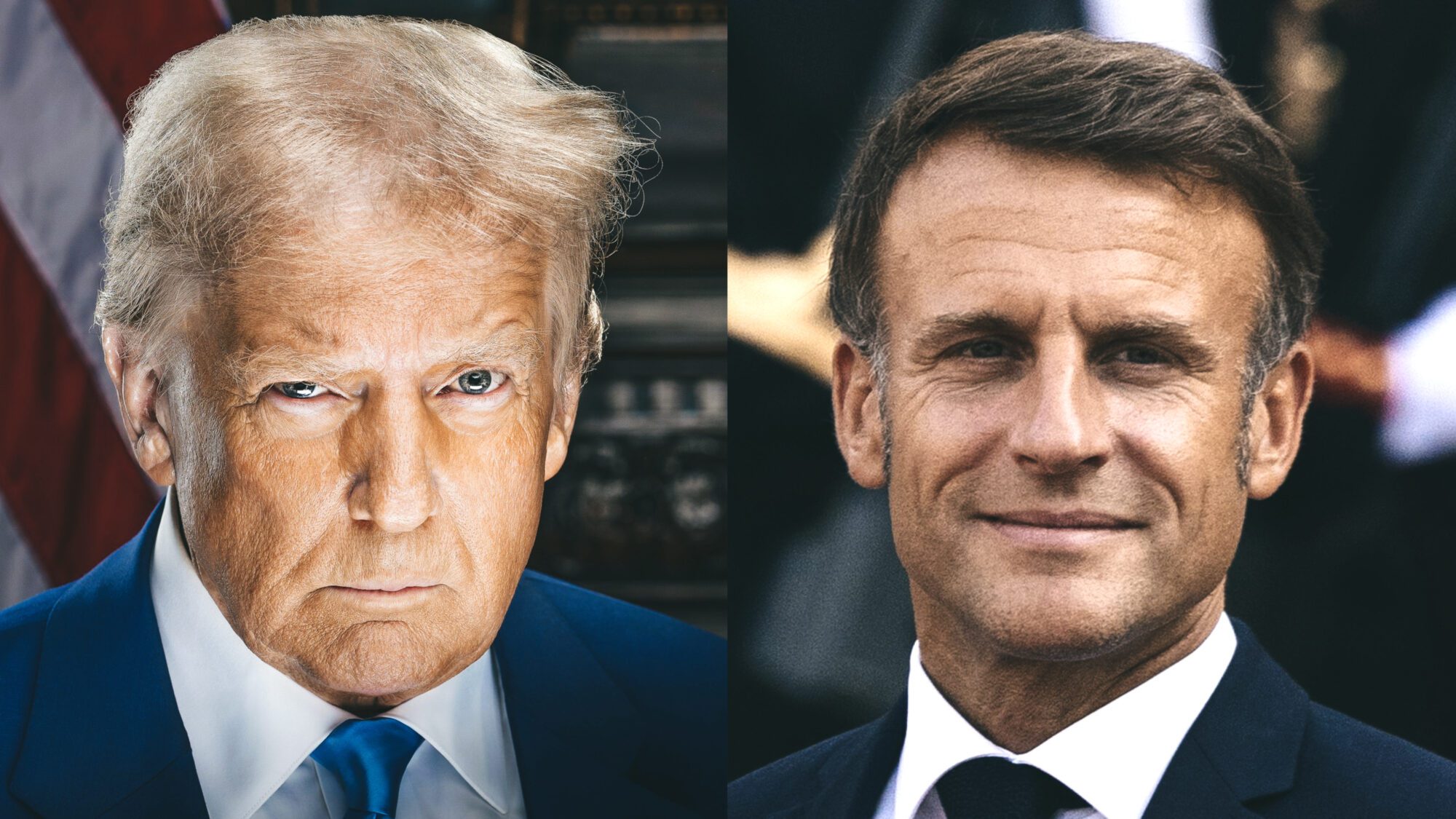
U.S. President Donald J. Trump and French President Emmanuel Macron
Wikimedia Commons
President Donald Trump dared to confront Colombia’s president on the issue of deportation and securing U.S. borders. By Sunday, January 26th, a symbolic and practical victory was secure. After Colombia refused to take back some of its nationals who were deported from the United States, the Colombian government finally submitted when retaliatory measures were announced by Trump. In France, Trump’s example is being used to demand similar treatment to Algeria, which regularly refuses to take back its expelled nationals.
The whole affair was conducted very quickly, and the manoeuvre was staged in a matter of hours. Initially, Colombia refused to accept on its soil a plane carrying Colombian citizens expelled from the United States. In response, Donald Trump announced a bunch of sanctions against Colombia with immediate effect: higher customs duties; revocation of visas and travel facilities for members of the Colombian government and their families; and tighter customs controls. The range of retaliatory measures was enough to force the Colombian president Gustavo Petro, who finally agreed to the return of the deportees.
The very short time taken to resolve the crisis did not go unnoticed by the French Right, in contrast to the laborious measures to deport delinquents that the French government has been desperately trying to implement for several months, mainly with regard to Algerian nationals.
“Trump has achieved in 1 hour what we’ve been explaining to the Macronists for 7 years”, exclaimed RN MP Guillaume Bigot when the press announced the Colombian president’s about-face, recalling his party’s pressing demands for a firm policy on immigration and crime. He added
He got Colombia to back down from its refusal to take back its nationals under OQTF (Obligation de Quitter le Territoire Français, or deportation order), by threatening to cut visas and increase customs duties.
The same view was echoed by magistrate Charles Prats, a specialist in immigration-related social payments fraud, who draws a direct parallel between Colombia and Algeria. “Trump is giving us the instructions for dealing with Algeria,” he explained on X.
Prats is referring to the never-ending tug-of-war between Algeria and France’s successive interior and foreign affairs ministers, who have been unable to obtain the return of offenders to their native country, which has repeatedly refused to issue the consular passes needed for expulsions. Sanctions against the Algerian government have been announced on numerous occasions but never implemented.
As Gilbert Collard, a former member of parliament and supporter of Éric Zemmour, put it succinctly: “Colombia is fine, Algeria is better!”
French minister of the interior Bruno Retailleau is the target of these statements, which are proliferating across the web. The soap opera of recent weeks surrounding the expulsion of Algerian TikTokers has shown both the strength of his rhetoric and the ineffectiveness of his words. On Friday, January 24th, CNews devoted an editorial to him entitled: “Retailleau: la méthode Trump?” (Retailleau: Trump’s method?) Two days later, the counterpoint with the results achieved by Trump in just a few hours makes his powerlessness all the more glaring.
What applies to France and Algeria also applies to Europe. “In 1 hour, Trump has achieved more than the whole of the European Union in 10 years,” wrote Pierre Sautarel, head of the Fdesouche news website, on X.
En 1h, Trump a plus obtenu que toute l'Union Européenne en 10 anshttps://t.co/mkXHPe9AX6
— Pierre Sautarel (@FrDesouche) January 26, 2025
What Trump has announced that he wants to implement for Colombia is no more and no less than a policy of sanctions. A weapon considered by the Brussels authorities to be used only with regard to Russia, or to punish conservative countries on domestic political issues. There is no policy of sanctions against the countries of origin of the migrants who are flooding the European continent and committing criminal acts in the host countries. What’s more, the EU continues granting development aid to a number of countries that send migrants—a budget that is constantly on the increase, with little or nothing asked in return.
